Fleeing via the Balkan route
The graffiti on the wall of an abandoned building next to Belgrade’s main train station summed it up: “The problem is the borders.”
The so-called Balkan route has been closed since last year, and now more than 1,000 refugees are stranded in the Serbian metropolis at below-freezing temperatures. Two Swiss – a photographer and a helper – report.
This part of Belgrade – the Serbian name for “white city” – is especially bleak in winter. Abandoned barracks lie between patches of snow and the railway station. They serve as unofficial accommodation for those who cannot retrace their steps along the Balkan route.
“The conditions in the warehouses really shocked me,” says Swiss photographer Christian Grund. “When I entered one large hall, my eyes needed to adjust to the gloomy light. I had to stand still, and the floor was packed with dark woollen blankets.” It was only after looking more closely that he could make out all the people. “I could make out the individual pairs of eyes, and there was coughing in every corner.”
There’s no escape from the cold, and there’s also no indoor plumbing. “They sleep on the floor, cook out in the open and wash themselves outside,” the photographer reports. To keep warm, they make open fires inside the buildings. “The smoke gathers under the ceiling and lingers,” says the photographer from Zurich. “Sometimes you can barely breathe.”
Journalist Benjamin von Wyl spent two weeks there as a volunteer this month. “During one of our night shifts, we saw a group of 10 to 14-year-old boys setting their tent on fire. They didn’t have any blankets.” He notes: “The barracks are full. That’s why there are dozens of shelters on the grounds behind the station – in covered car parks and discarded train wagons.”
When von Wyl was there, it was -14°C (7°F). The small groups of volunteers try to offer comfort, serving hot tea twice a day. “The tea is warm. But it’s much more than that,” stresses the 26-year-old. It provides a meeting place – a social and pragmatic one.
“The fugitives depend on people with passports who can receive money from their relatives at Western Union.” There were also some happy moments, recalls the helper. “But the whole situation is desperate.”
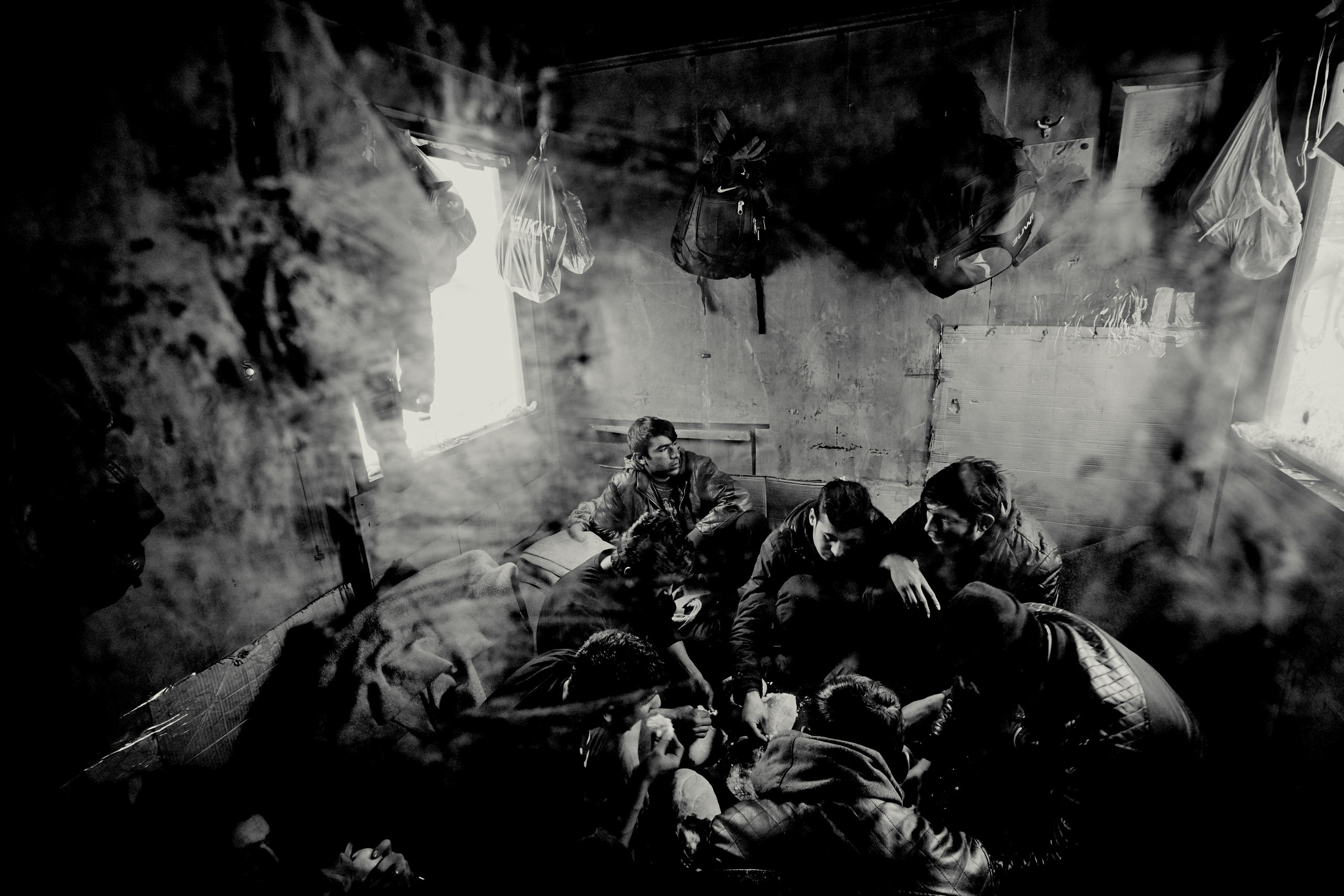
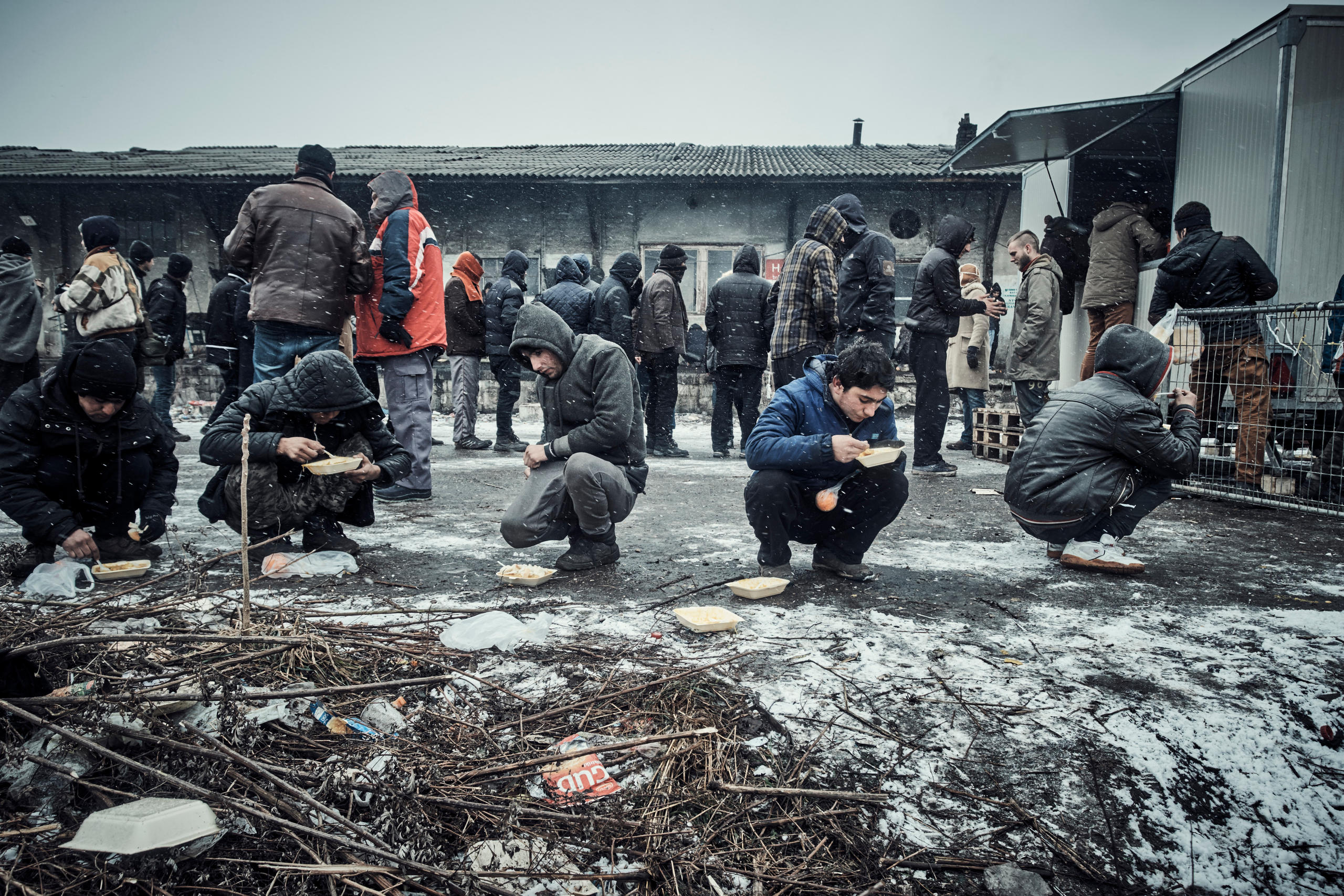
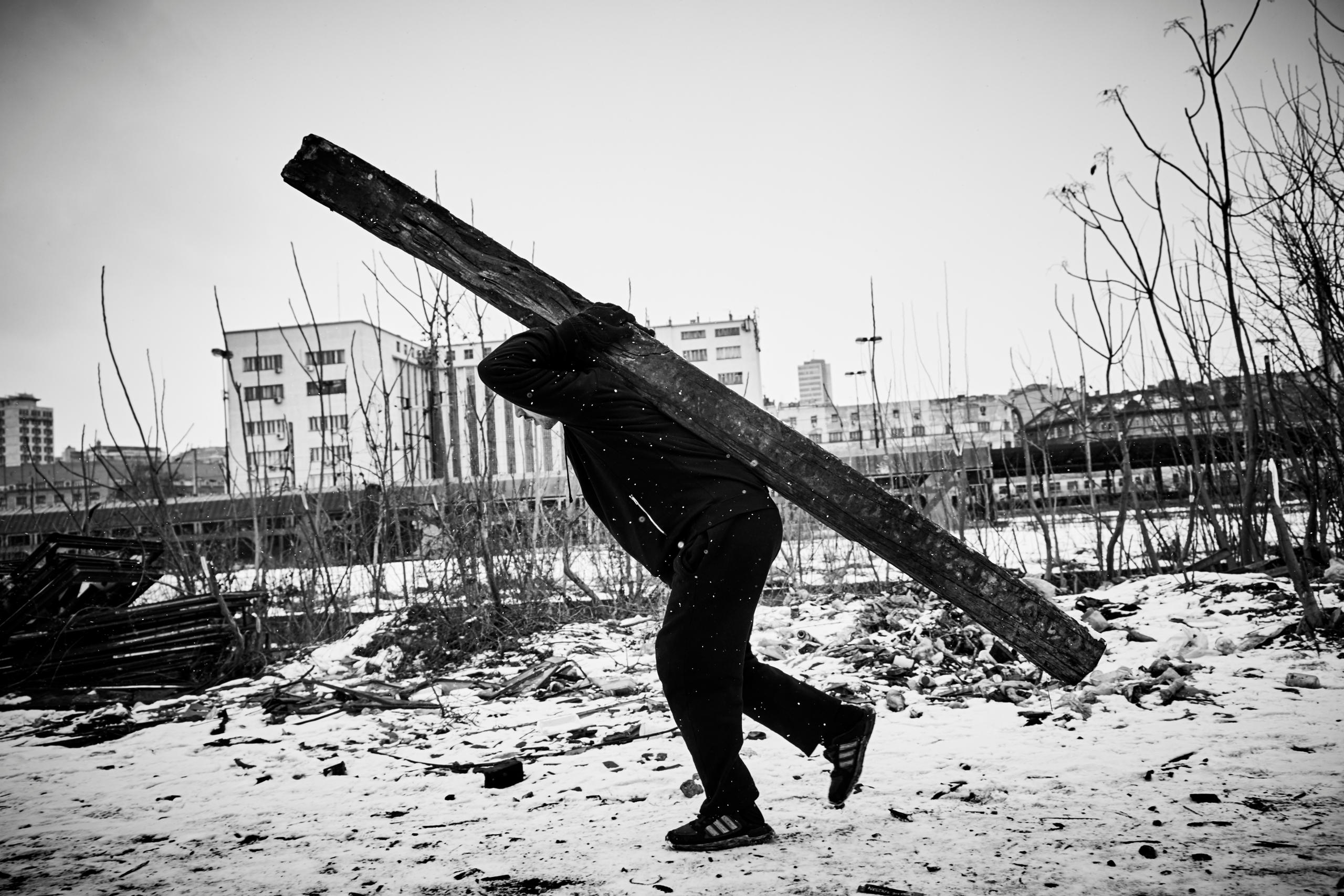
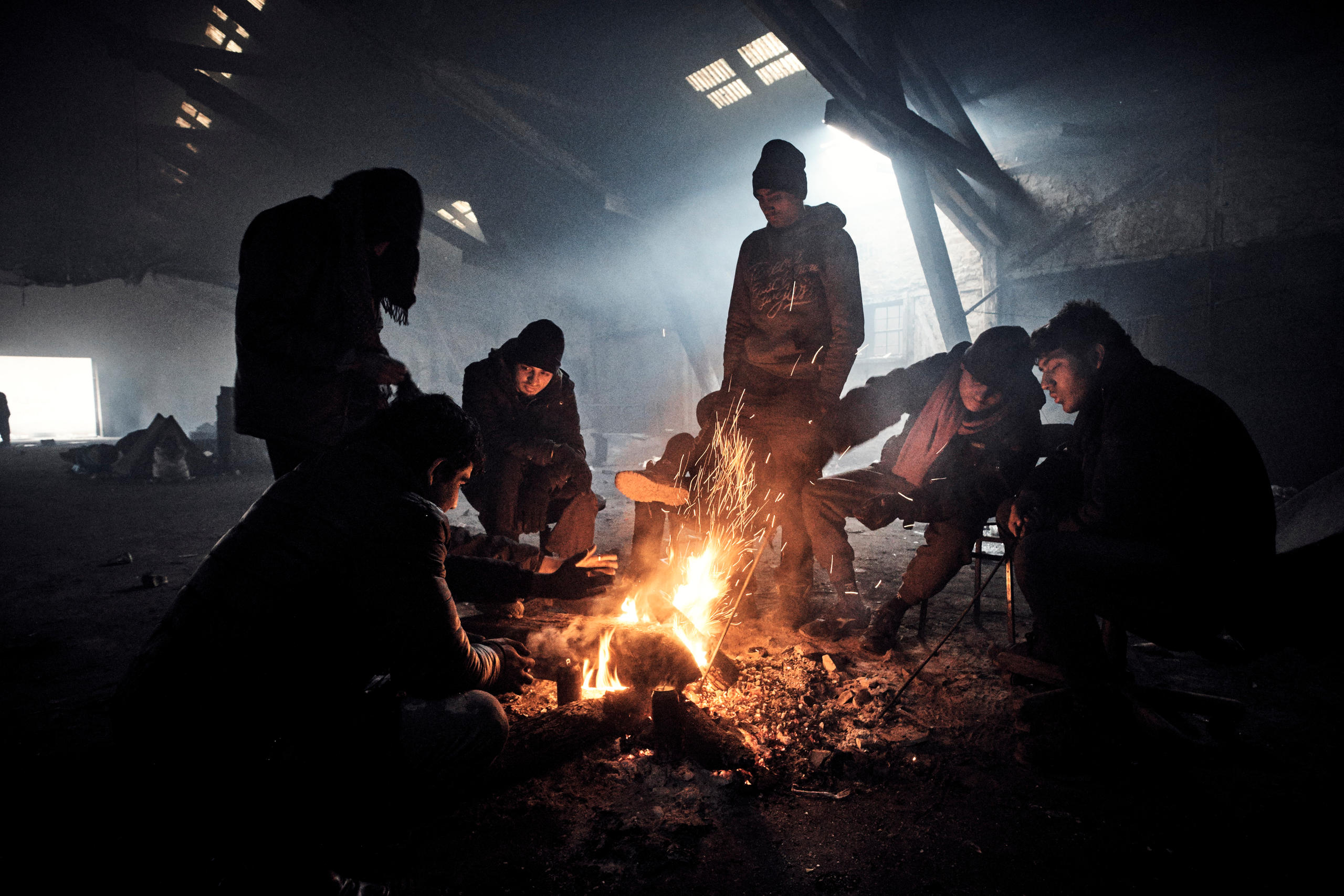
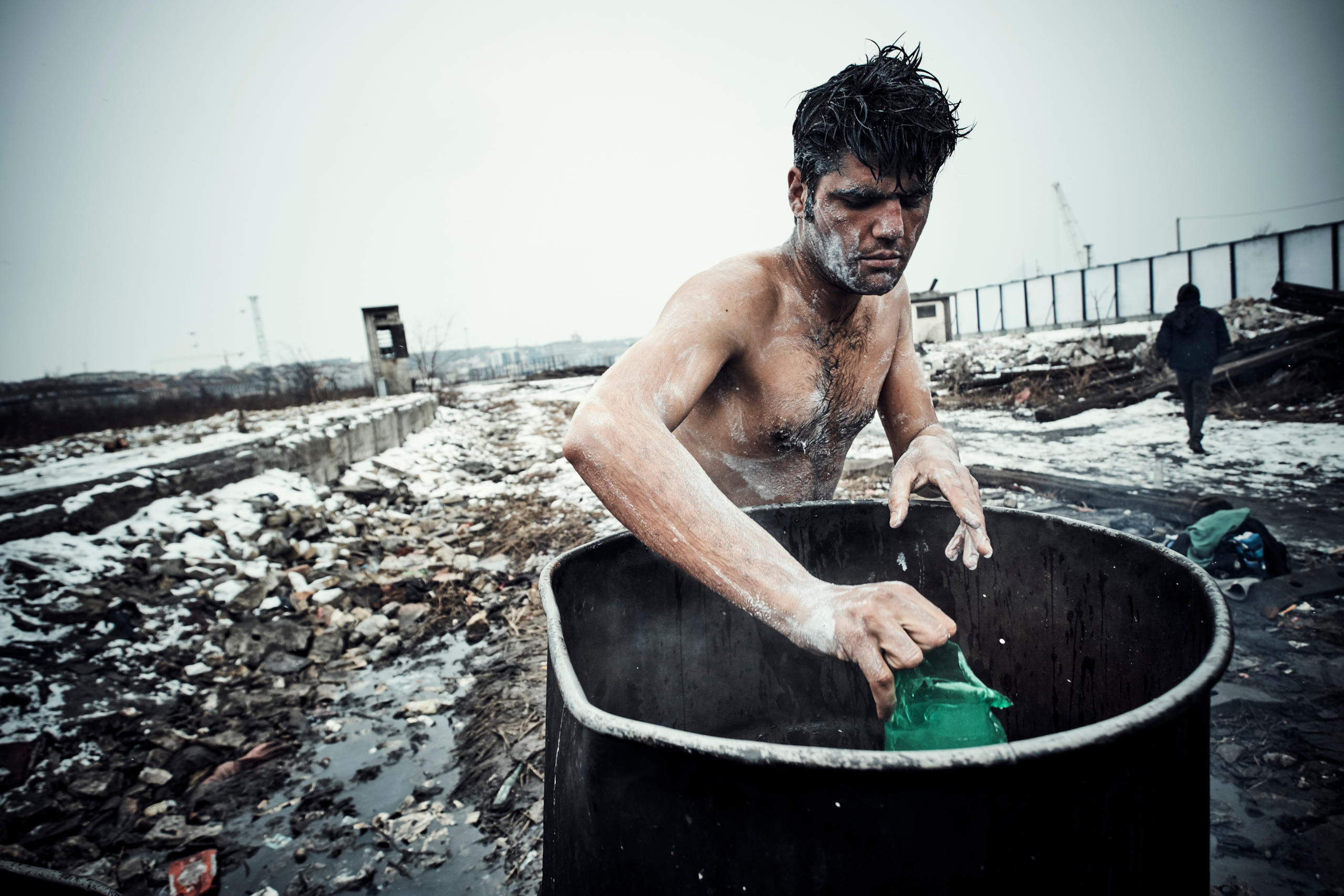
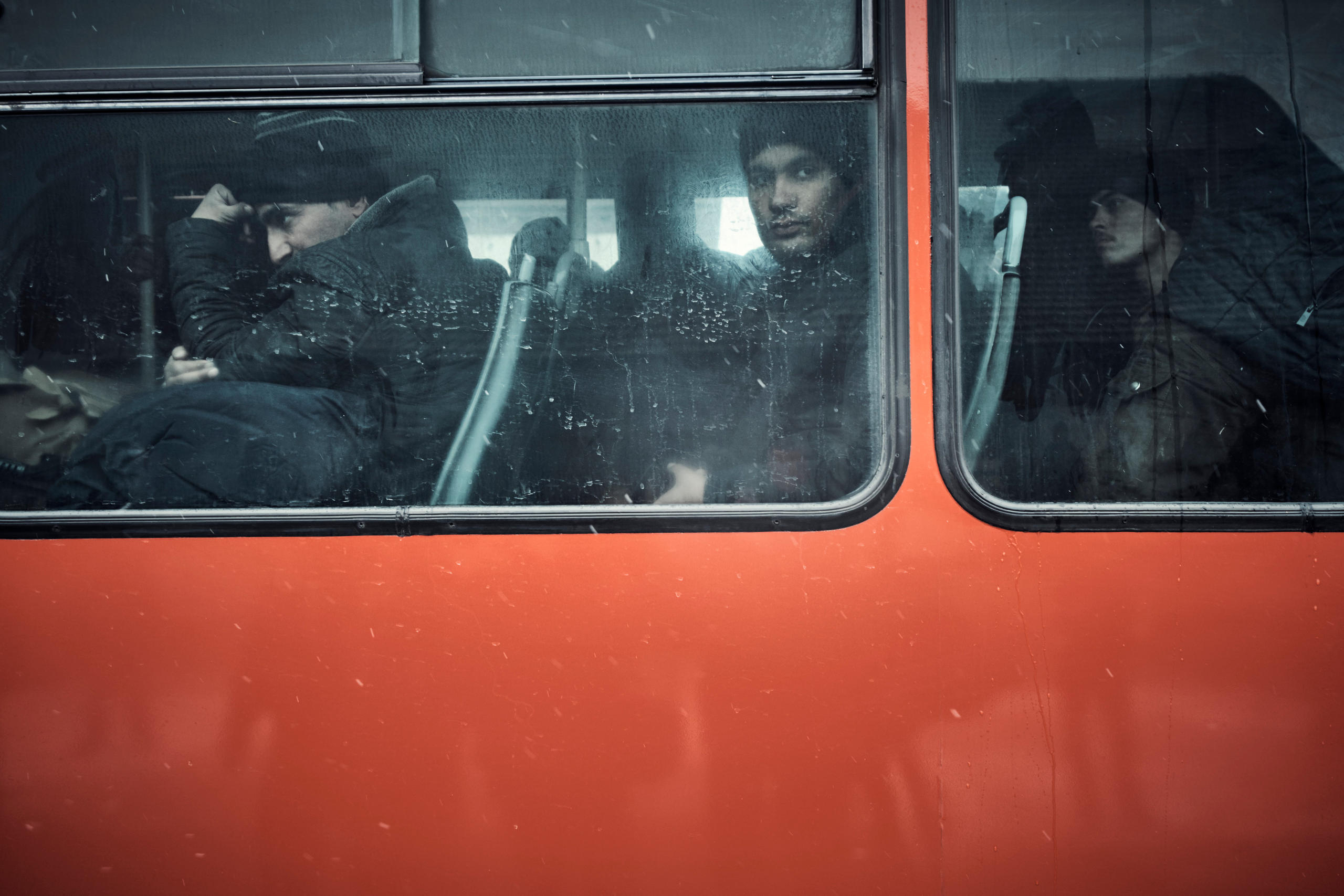
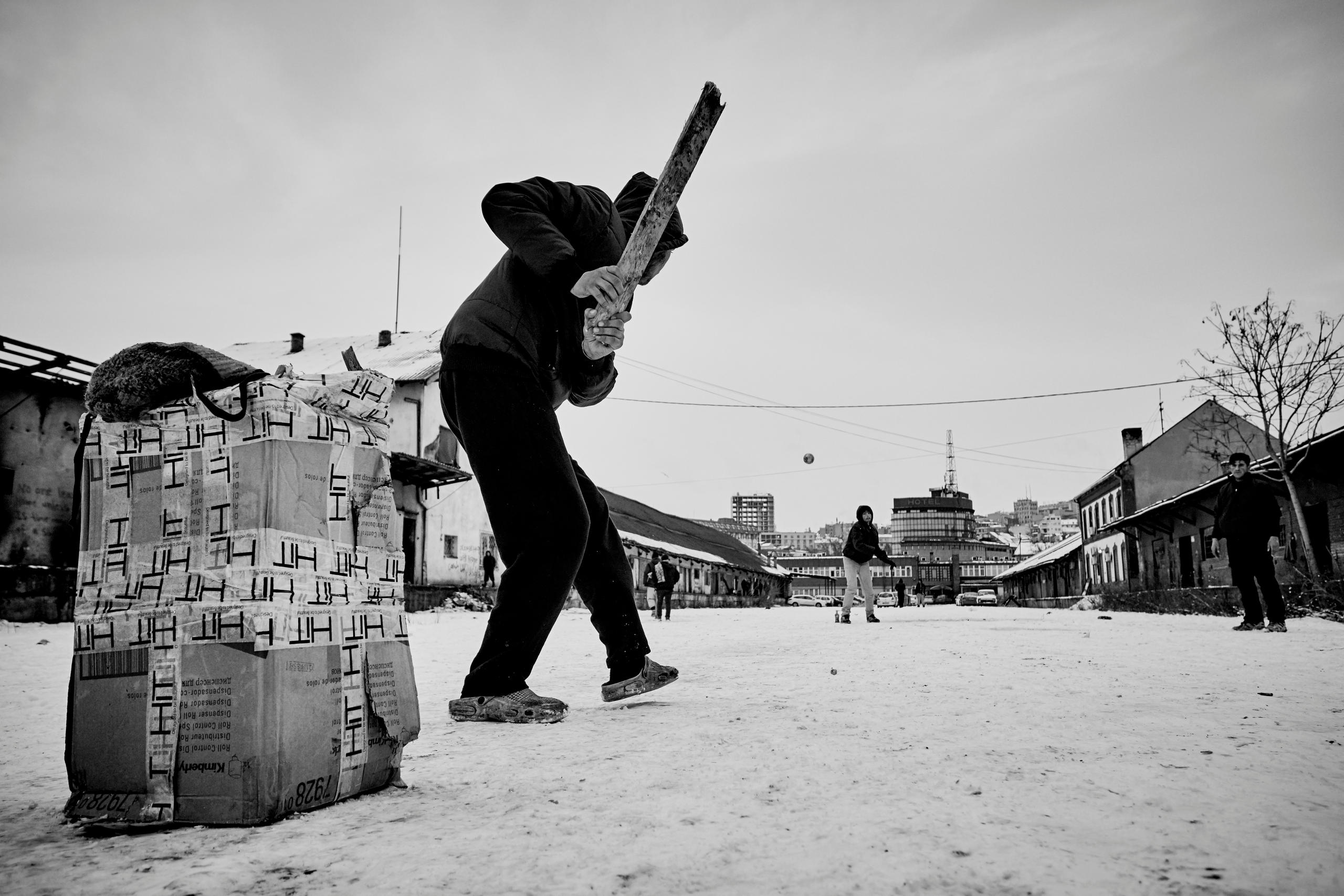
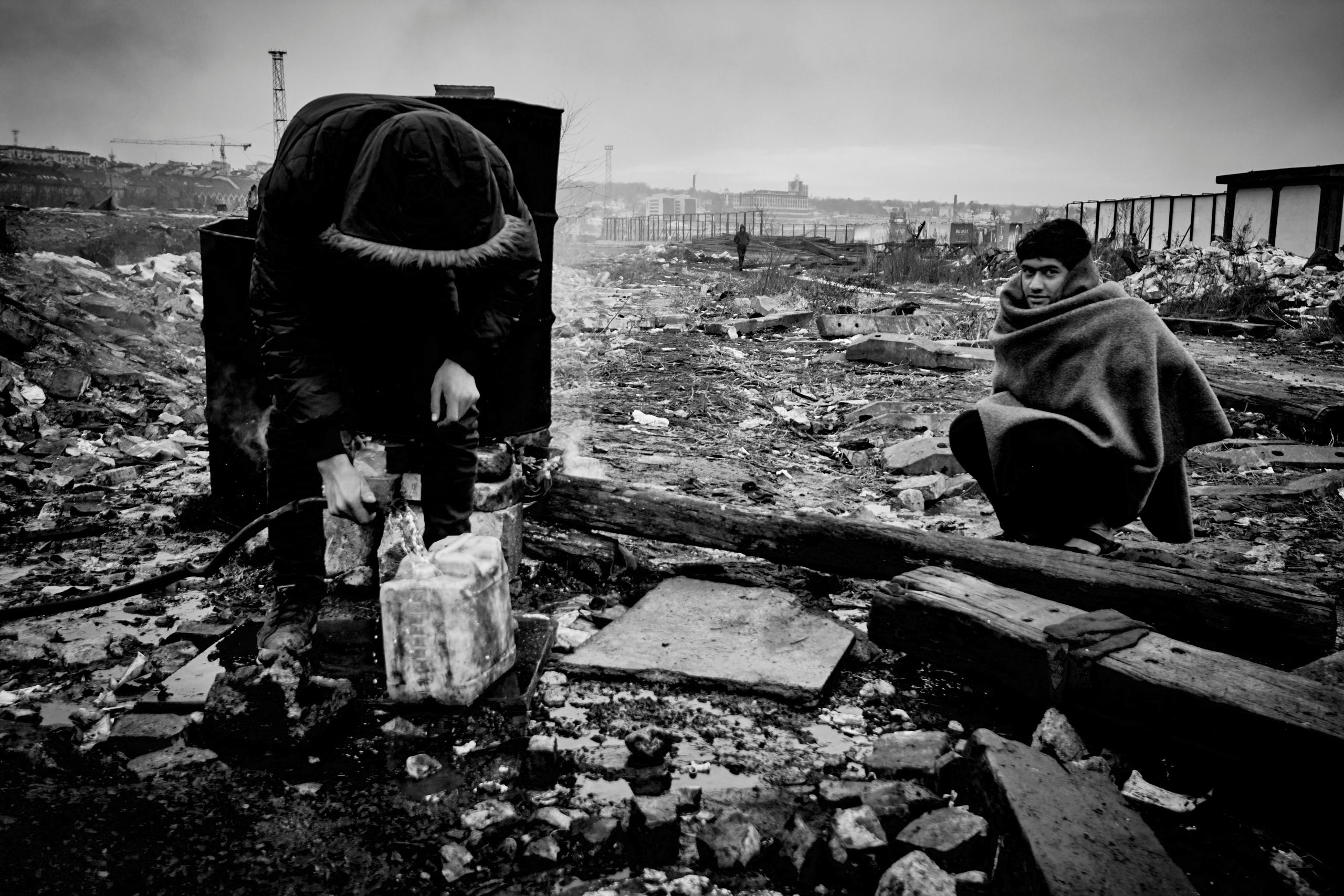
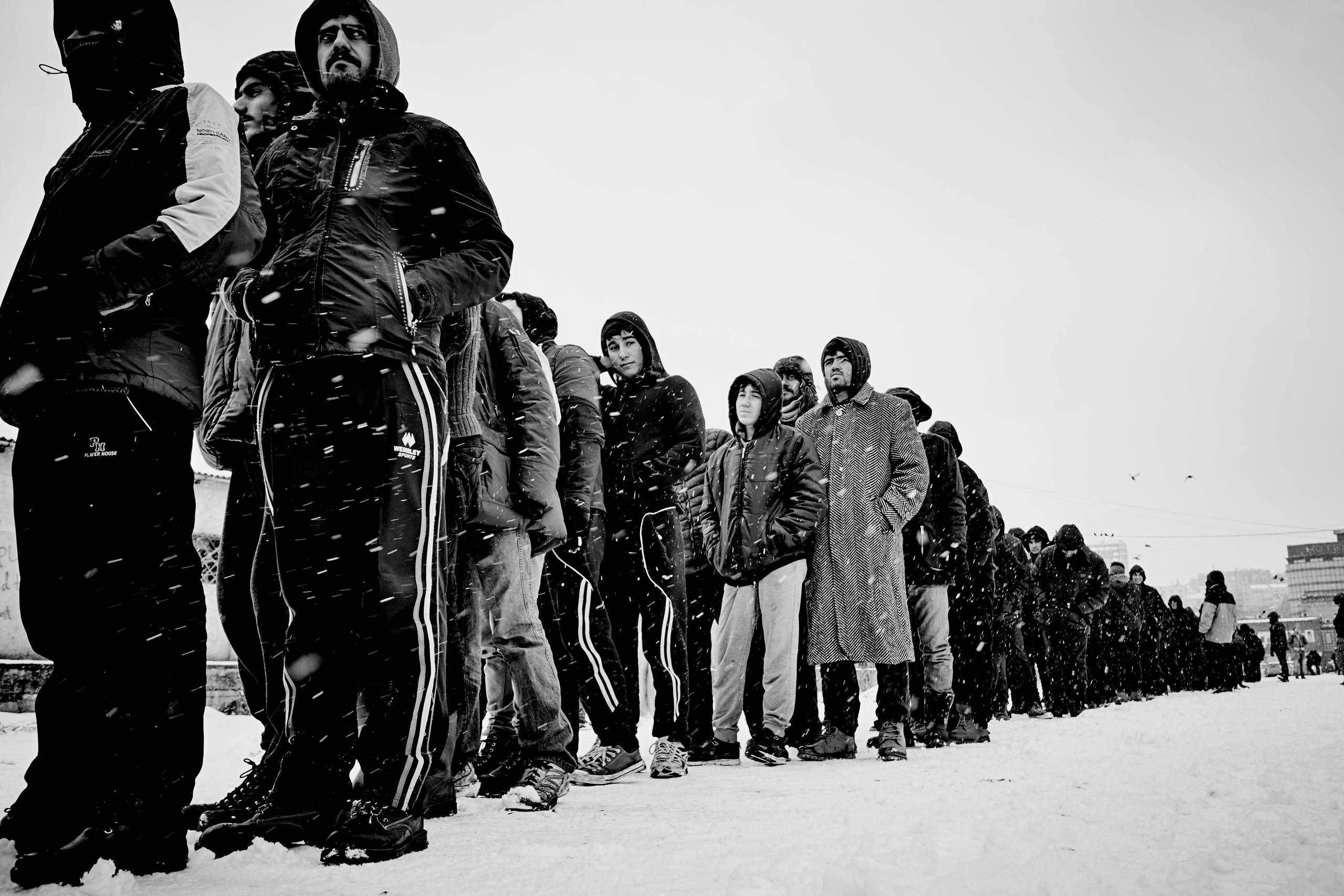
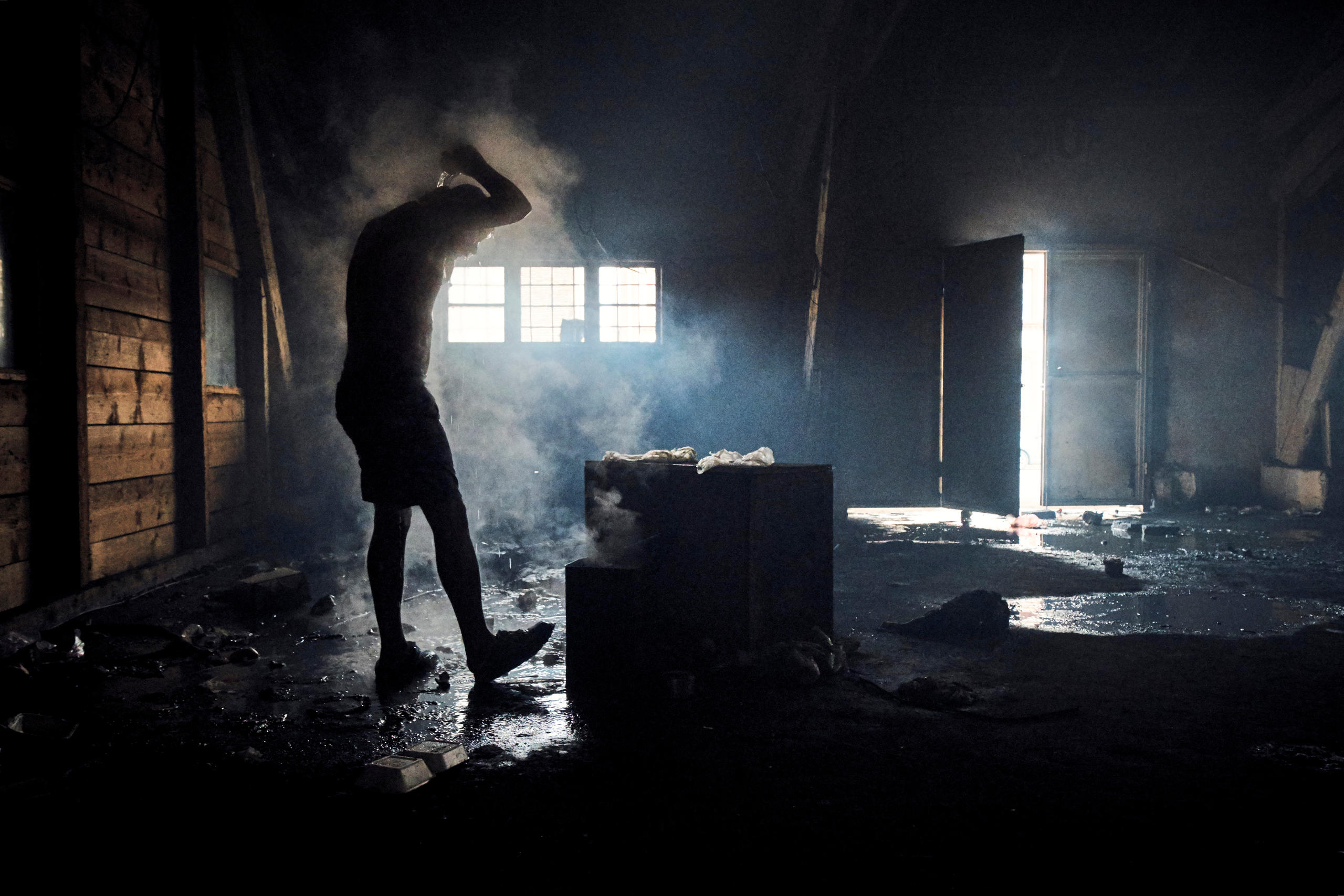
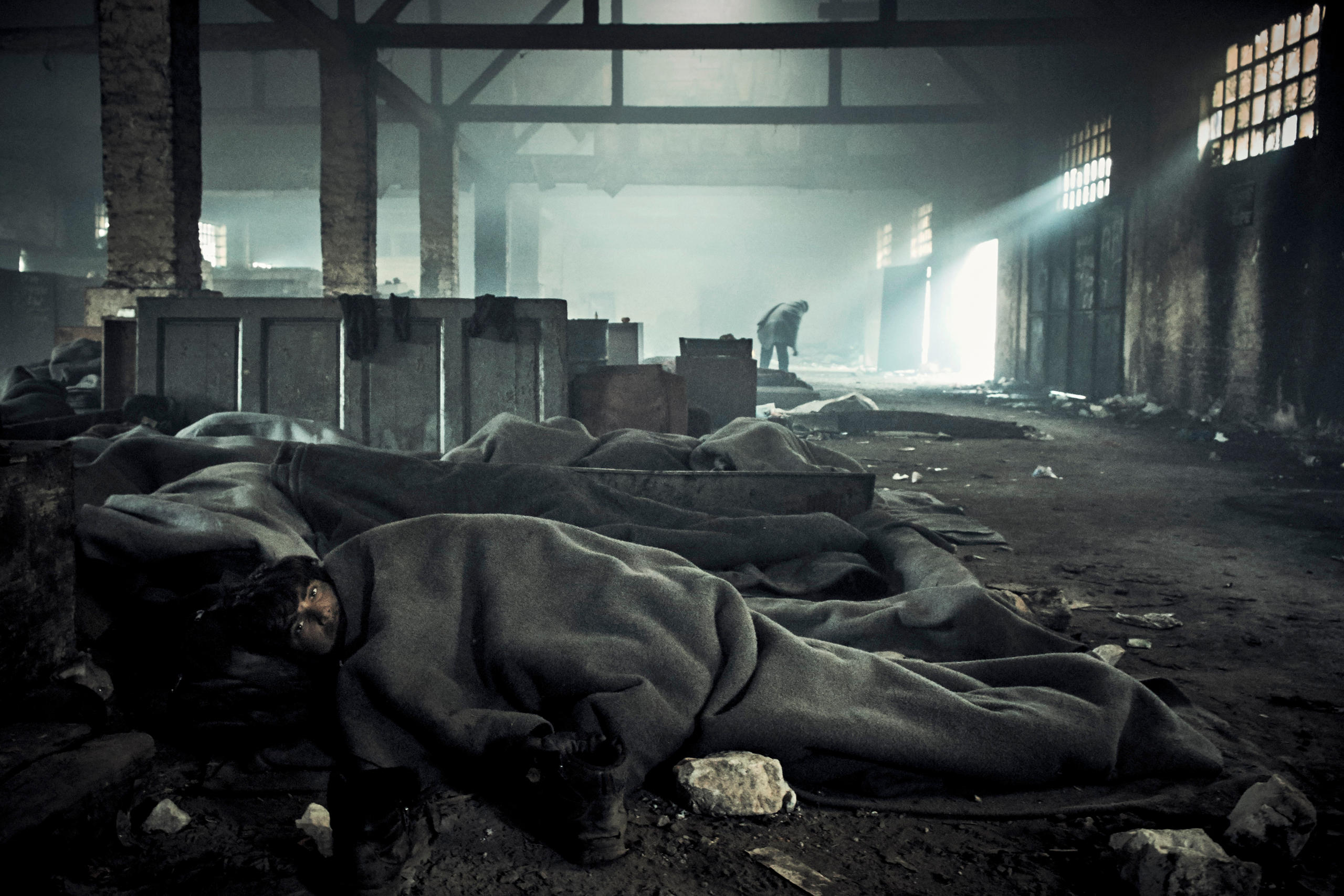
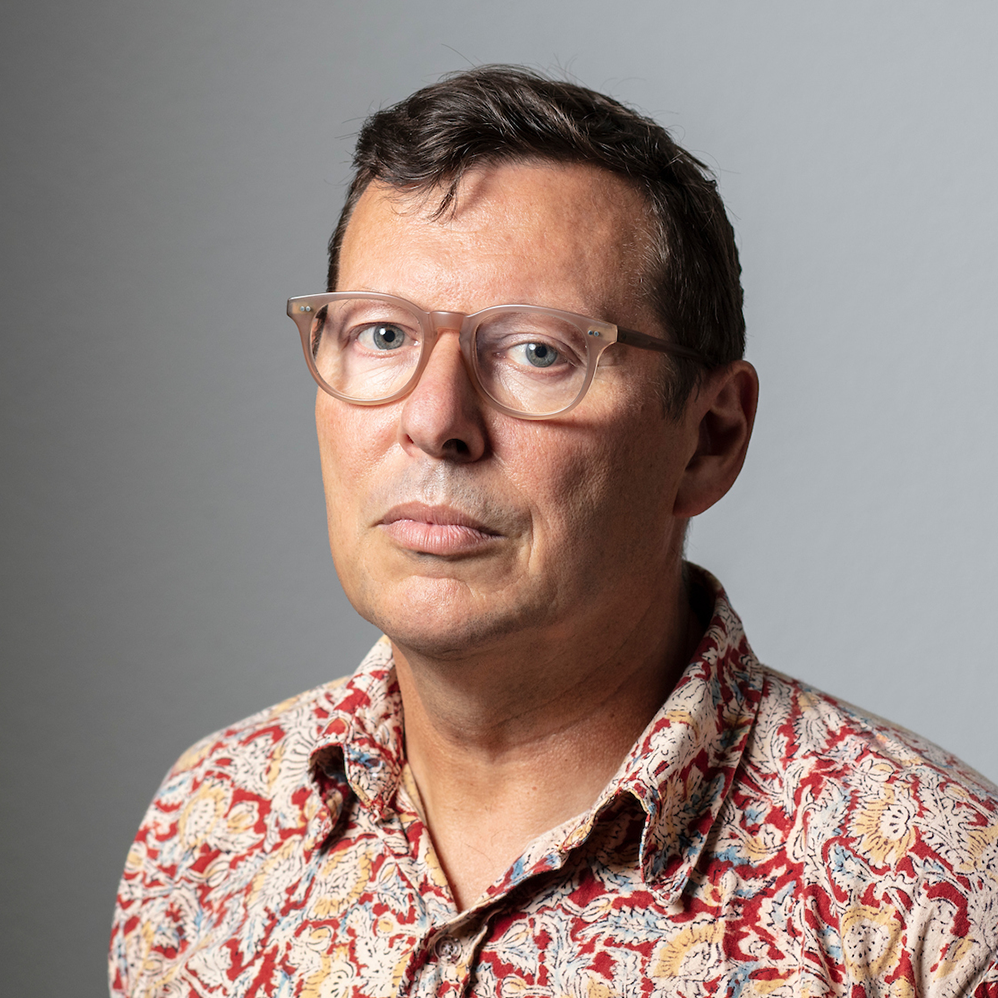

You can find an overview of ongoing debates with our journalists here. Please join us!
If you want to start a conversation about a topic raised in this article or want to report factual errors, email us at english@swissinfo.ch.